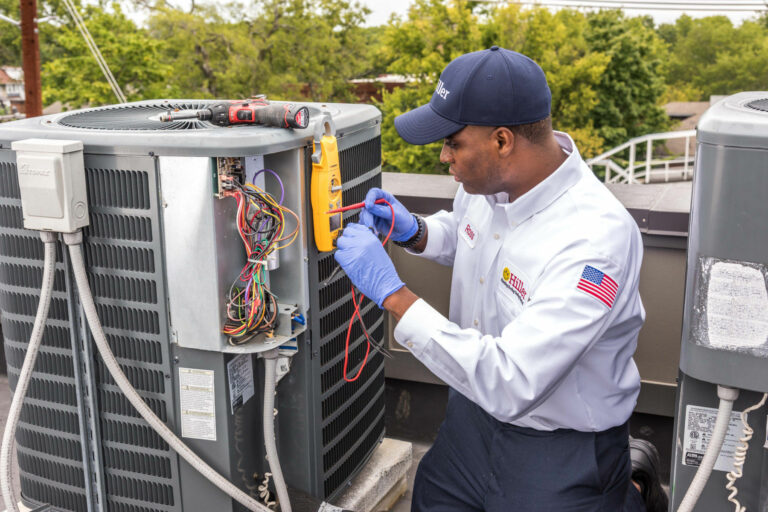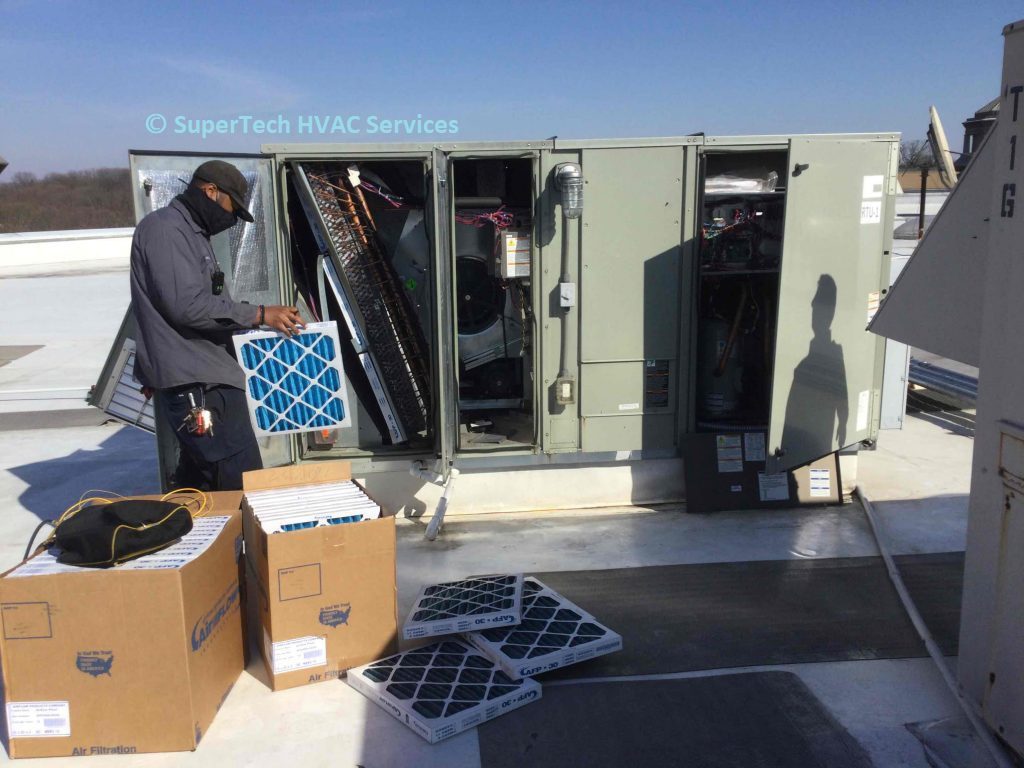Comparing Costs of Repair vs Full furnace replacement
Wiki Article
Picking In Between a Heat Pump and Heating System: Key Factors To Consider for Your Heating And Cooling Needs
When examining heating alternatives for heating and cooling requires, the decision between a heat pump and a heater can be complicated. Each system uses distinctive benefits customized to specific climates and energy effectiveness goals. Comprehending these distinctions is crucial for making an educated selection. Key factors such as installation costs and ecological influence even more make complex the selection process. Which choice absolutely lines up with one's comfort and sustainability choices? The adhering to areas will explore these considerations thoroughly.Understanding Heat Pumps: Exactly How They Work and Their Benefits
While numerous property owners consider various home heating choices, comprehending how heatpump feature and their advantages can considerably affect their decision. Warmth pumps operate by moving warm rather than producing it. In the winter months, they remove warmth from the outside air or ground and transfer it inside your home, while in the summer, they reverse this procedure, cooling the home by expelling warmth outside. This dual functionality makes them flexible for year-round climate control.One of the main benefits of warmth pumps is their energy performance. They utilize substantially less electricity contrasted to traditional heater, potentially leading to reduced utility expenses (heat pump service). In addition, heatpump have a smaller carbon impact, making them an eco-friendly selection. They also need much less upkeep than conventional systems, adding to long-lasting expense financial savings. In general, comprehending the technicians and advantages of warm pumps can aid house owners make notified decisions concerning their heating and cooling demandsDiscovering Furnaces: Types, Operation, and Benefits
Heaters can be found in various types, including gas, electric, and oil designs, each with unique functional systems. Recognizing these distinctions is important, as they influence efficiency and heating performance. Additionally, furnaces offer various benefits, such as consistent heat output and reliability in colder environments.Kinds of Heaters
Furnace can differ substantially in style and operation, with furnaces being a popular choice amongst home owners. There are numerous kinds of heating systems, each making use of various fuel resources and modern technologies. Gas heaters prevail, leveraging gas to create heat efficiently. Electric heaters, on the various other hand, use electric resistance to create heat, typically favored for their straightforward installment. Oil heating systems, while less usual, are efficient in areas with minimal gas accessibility (ductless mini splits). In addition, condensing heating systems make best use of energy performance by recording and reusing exhaust gases. Each kind operates with a system of heat exchangers and ductwork to disperse cozy air throughout a home. Recognizing the distinctions in between these heating system kinds is vital for informed a/c choicesBenefits of Furnaces
For home owners seeking reliable warmth throughout cold months, the benefits of furnaces are considerable. Furnaces offer consistent home heating, guaranteeing also temperatures throughout the home. They are particularly efficient in severe cool, commonly surpassing heatpump in freezing conditions. Numerous kinds, consisting of gas, electric, and oil furnaces, use adaptability to meet diverse requirements and preferences.Furnaces likewise often tend to have reduced first installation costs compared to heat pumps, making them a much more easily accessible alternative for many. Their robust design contributes to a longer lifespan, with numerous units lasting over 15 years with appropriate maintenance. Furthermore, contemporary heating systems are commonly outfitted with advanced modern technology for improved efficiency, which can lead to reduced energy costs. Generally, heaters continue to be a reliable choice for efficient home heating.
Power Performance: Contrasting Heat Pumps and Furnaces
When comparing energy effectiveness in between heatpump and heating systems, the Seasonal Power Performance Ratio (SEER) plays an essential duty in determining performance. Additionally, an operational expense analysis exposes the lasting financial effects of each system. Recognizing these factors can direct property owners in making informed choices regarding their heating remedies.Seasonal Energy Effectiveness Ratio
Power effectiveness plays a necessary duty in the decision-making process in between heatpump and heating systems, specifically when taking into consideration the Seasonal Energy Efficiency Ratio (SEER) This metric measures the cooling efficiency of heat pumps over a whole cooling period, offering a standardized way to examine efficiency. Higher SEER ratings show higher power effectiveness, equating to reduced power usage and decreased utility bills. On the other hand, heaters are generally assessed making use of the Yearly Gas Application Effectiveness (AFUE) ranking, which mirrors heating efficiency. When contrasting these two systems, property owners must focus on SEER rankings for heatpump, as they directly influence general power cost savings and environmental sustainability. A detailed understanding of SEER can notably affect the long-lasting fulfillment and cost-effectiveness of the picked a/c option.Operational Expense Analysis
Comprehending the functional expenses related to warmth pumps and heating systems is vital for house owners evaluating their alternatives. Heatpump typically offer higher power performance, transforming electrical energy right into warmth with very little waste. This results in lower month-to-month energy bills, particularly in modest get redirected here environments. Conversely, standard heaters, particularly gas models, might have lower upfront prices yet can incur higher operational costs in time because of fuel prices and effectiveness ratings.Moreover, heatpump can function as both heating and cooling down systems, potentially decreasing the demand for separate cooling and heating units. While first investments for heatpump might be higher, their long-lasting financial savings in energy effectiveness can make them a much more cost-effective selection for lots of families. Cautious evaluation of local power rates is important to figure out the very best choice.Setup Prices: What to Anticipate for every Heating Unit
Installment prices for heating unit can more differ substantially in between heatpump and heaters, influencing homeowners' choices. Heatpump typically have higher in advance setup costs, normally varying from $3,500 to $8,000, depending upon the device size and complexity of installment. This includes the outdoor unit, indoor handling system, and needed ductwork adjustments. On the other hand, heating systems tend to have reduced initial prices, averaging in between $2,500 and $6,000, which can be appealing for budget-conscious house owners. Installation expenditures can enhance if comprehensive ductwork is required.Moreover, the option of gas kind for furnaces-- all-natural gas, gas, or electric-- can additionally affect installment expenses. While heatpump offer power performance, their preliminary financial investment might prevent some customers. Eventually, evaluating setup costs together with lasting financial savings and effectiveness will help home owners in making notified decisions about their heater.Climate Considerations: Which System Does Better in Your Location
Just how do environment problems influence the effectiveness of home heating systems? The performance of heatpump and heating systems can vary significantly relying on the regional environment. In moderate climates, heat pumps succeed by effectively moving warmth from the outdoors air, making them an energy-saving alternative. Their effectiveness reduces in incredibly cold temperature levels, where they may struggle to draw out sufficient warmth. On the other hand, heating systems, particularly gas designs, offer reputable and constant heat no matter outside problems, making them more suitable in cooler regions.In areas that experience milder winters months, heatpump can run effectively year-round, offering both cooling and heating. In contrast, regions with extreme wintertimes typically take advantage of the robustness of heaters. Eventually, recognizing the neighborhood climate is necessary when making a decision between a warm pump and a furnace, as it directly impacts their functional efficiency and general performance.Upkeep Needs: Long-Term Care for Warm Pumps vs. Furnaces
While both heatpump and furnaces need routine maintenance to guarantee peak efficiency, their specific needs and care routines vary substantially. Heaters typically need less frequent interest, with yearly assessments being enough to look for gas leakages, tidy filters, and assess general functionality. Their easier style frequently enables uncomplicated repairs.In comparison, heatpump demand semiannual maintenance as a result of their twin function in heating & cooling. This consists of cleaning coils, checking refrigerant degrees, and making sure that both the exterior and indoor devices work at their best. In addition, heatpump maintenance typically involves more detailed elements, making professional servicing essential.Neglecting upkeep can result in diminished effectiveness and increased energy prices for both systems. Eventually, home owners must consider these long-lasting treatment requirements when picking between a warm pump and a heater, as proactive maintenance can prolong the life expectancy and performance of either system considerably.Environmental Effect: Choosing a Lasting Heating Option
The ecological effect of home heating systems is an important examination for house owners looking for lasting alternatives. Heatpump are typically a lot more energy-efficient than typical furnaces, as they transfer heat instead of generate it, significantly minimizing carbon exhausts. By making use of eco-friendly power resources, such as air-source or geothermal warmth pumps, home owners can better lessen their eco-friendly footprint.On the various other hand, natural gas heating systems discharge greenhouse gases and add to air contamination, though they commonly give greater warmth output. Nonetheless, advancements in modern technology have led to the growth of high-efficiency heating systems that reduce emissions.Ultimately, selecting a furnace includes evaluating efficiency versus environmental influence. Property owners my review here are urged to show on local power resources and rewards for eco-friendly systems, making sure a choice that lines up with both individual comfort and ecological responsibility. The decision affects not just instant convenience but likewise long-term sustainability and environmental wellness.Frequently Asked Concerns
The Length Of Time Do Warmth Pumps and Furnaces Normally Last?
The lifespan of heatpump normally varies from 15 to two decades, while furnaces can last between 15 to thirty years. Regular upkeep substantially impacts their long life and efficiency in offering home heating remedies.Can I Use a Warm Pump in Exceptionally Cold Climates?
Heatpump can run in exceptionally cold climates, however their performance diminishes as temperatures decrease. In such problems, supplementary heating sources may be needed to keep comfy indoor temperatures and ensure peak performance.
What Is the Noise Degree of Warm Pumps Versus Furnaces?
The noise degrees of heatpump and furnaces differ considerably. Typically, heatpump run more silently than standard furnaces, making them more suitable for those conscious seem, while furnaces might produce louder functional noises throughout heating cycles.
Are Warm Pumps Suitable for Both Heating and Air conditioning?
Heat pumps are without a doubt appropriate for both heating & cooling (furnace replacement). They function by moving heat, supplying effective temperature level control year-round, making them a flexible selection for house owners looking for an all-in-one a/c remedyWhat Size Heating Unit Do I Required for My Home?
Identifying the ideal size heating system for a home calls for evaluating aspects such as square video, insulation quality, regional environment, and the home's layout. Consulting an expert can assure an exact assessment and optimal convenience. Heat pumps normally supply higher energy effectiveness, transforming electrical power right into heat with minimal waste. In modest climates, heat pumps stand out by effectively moving warmth from the outdoors air, making them an energy-saving alternative. Conversely, heating systems, especially gas designs, give dependable and constant warmth no matter of exterior problems, making them more suitable in cooler regions.In locations that experience milder winters months, warmth pumps can run effectively year-round, offering both home heating and air conditioning. Warm pumps are typically a lot more energy-efficient than conventional heating systems, as they move warmth rather than produce it, considerably minimizing carbon discharges. By using sustainable energy sources, such as geothermal or air-source warm pumps, home owners can further reduce their environmental footprint.On the various other hand, all-natural gas heaters discharge greenhouse gases and add to air pollution, though they commonly supply higher heat outcome.Report this wiki page